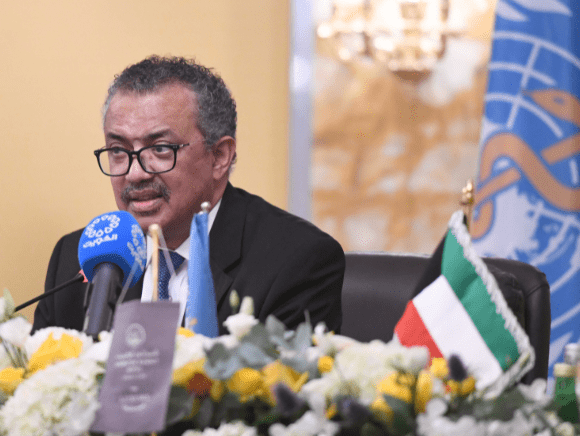Just when it appeared that most of the world was returning to normal life after the nightmare inflicted upon it by the global response to the COVID-19 pandemic, The World Health Organization (WHO) declared a monkeypox health emergency. Related to smallpox but with milder symptoms, the monkeypox virus has been present in parts of Africa for decades. But only in May did it begin to spread across the globe. Hopefully, though, this virus outbreak will not lead to the kind of mass hysteria witnessed over the past two years with COVID-19. In short, there are plenty of reasons not to panic.
[substack align=”right”]So far, more than 16,000 cases have been reported across 75 countries and territories, but there have only been five confirmed deaths. In the US, the Centers for Disease Control and Prevention (CDC) have reported 2,891 confirmed cases. Most of them are in New York.
While it is possible for anybody to contract monkeypox, the majority of confirmed cases have been among gay or bisexual men. This virus is usually transmitted through direct physical contact with the bodily fluids of an infected person, through contact with the skin lesions caused by the virus, or by coming into contact with contaminated materials. So, unlike COVID-19, this is not a virus that hangs in the air above people seated in restaurants, ready to attack them the moment they stand up.
Tedros Adhanom Ghebreyesus, the director-general of the WHO, indicated that the monkeypox health emergency is not going to lead to global shutdowns or the mass incarceration of people inside their own homes, as happened during the COVID outbreak. Tedros does not foresee any great risk of interference with international trade or travel and, while delivering remarks on the virus, he appeared optimistic that the world is not looking at another global crisis. “Although I am declaring a public health emergency of international concern,” Tedros said, “for the moment, this is an outbreak that is concentrated among men who have sex with men, especially those with multiple sexual partners. That means that this is an outbreak that can be stopped with the right strategies in the right groups.”
Monkeypox Health Emergency? How Convenient
Here we go again, is probably the one thought going through the minds of people who emerged from the recent pandemic with a very great amount of skepticism regarding the motives of those who whipped everybody into a frenzy over masks, social distancing, and vaccines.
 A common new adage doing the rounds of the social media platforms, these days, is, “Perhaps we should stop referring to them as conspiracy theories and start calling them spoiler alerts.” Maybe, that’s not such a bad idea after all. And among the conspiracy-minded, this monkeypox health emergency will no doubt appear to have been extraordinarily well-timed. People across the world had so recently reclaimed their freedom, masks are now only worn by die-hard devotees, and even the push for mass forced vaccination now seems all but pointless. Civil unrest has popped up in various countries as ordinary working people rebel against onerous new environmental and other regulations, and a hugely consequential round of elections is just over the horizon in the United States. That is all wild speculation, of course – or is it?
A common new adage doing the rounds of the social media platforms, these days, is, “Perhaps we should stop referring to them as conspiracy theories and start calling them spoiler alerts.” Maybe, that’s not such a bad idea after all. And among the conspiracy-minded, this monkeypox health emergency will no doubt appear to have been extraordinarily well-timed. People across the world had so recently reclaimed their freedom, masks are now only worn by die-hard devotees, and even the push for mass forced vaccination now seems all but pointless. Civil unrest has popped up in various countries as ordinary working people rebel against onerous new environmental and other regulations, and a hugely consequential round of elections is just over the horizon in the United States. That is all wild speculation, of course – or is it?
The World Health Organization is using a label that does seem somewhat chilling: Public Health Emergency of International Concern (PHEIC). During the COVID pandemic, governments and globalist institutions found out – to their delight, it is fair to suggest – that they could exercise almost unlimited control over entire populations and economies in the name of a public health emergency. Thus, PHEIC is an acronym with which everyone is likely going to become familiar over the years and decades ahead.
This time around, though – with monkeypox – most people have little to fear. Still, it is going to be interesting to observe how the establishment media treats this latest new scare. After the vast amount of disinformation they put out during the COVID crisis, it is to be hoped they learned their lesson and will not begin a fresh orgy of fearmongering. Then again, this is the left-wing media we are talking about – and optimism that they stick with the real science and the facts this time should be employed with caution.




